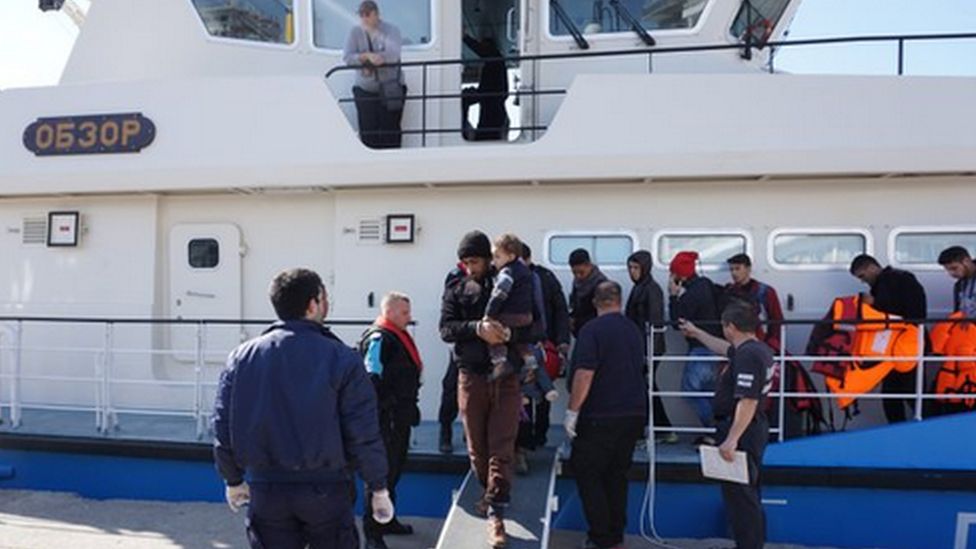Migrant crisis: EU patrol ship saves 900 migrants off Greece
- Published

About 900 migrants have been rescued near the Greek island of Lesbos, the EU border agency Frontex has said.
They were taken aboard a Bulgarian ship on patrol between Lesbos's port of Mytilene and the Turkish coast.
Frontex said it was picking up all the migrants it encountered at sea because bad weather made the crossing more dangerous during the winter.
More than 1m people arrived in the EU in 2015, making it Europe's worst refugee crisis since World War Two.
New reception centres
Frontex announced Thursday's rescue in a tweet, posting a photo of some of the migrants who later disembarked from the Bulgarian ship at Mytilene.
The migrants' nationalities were not immediately known.
Earlier this week, Greek started to register asylum seekers at four new reception centres on islands near Turkey, including Lesbos. This is being done in line with a demand from the EU.
Converted shipping containers and prefab shelters are being used to house thousands of people. The EU says they must all be registered there and fingerprinted before going anywhere else.
Last year more than 850,000 migrants - mostly refugees fleeing war and abuses in Syria, Iraq and Afghanistan - entered Greece as a gateway to the EU.
During the summer months, some 7,000 migrants were arriving in Greece every day after crossing the Aegean Sea from Turkey.
More than 700 died during their perilous journeys last year, and at least another 100 this year.
The EU has pledged €3bn (£2.3bn; $3.3bn) to Turkey in return for housing refugees and strengthening the country's borders.
Turkey is home to nearly three million refugees, most of them from Syria.
Many of them pay smugglers thousands of dollars to make the crossing to Greece. They then head north, trying to reach Germany and Scandinavia.
A note on terminology: The BBC uses the term migrant to refer to all people on the move who have yet to complete the legal process of claiming asylum. This group includes people fleeing war-torn countries such as Syria, who are likely to be granted refugee status, as well as people who are seeking jobs and better lives, who governments are likely to rule are economic migrants.